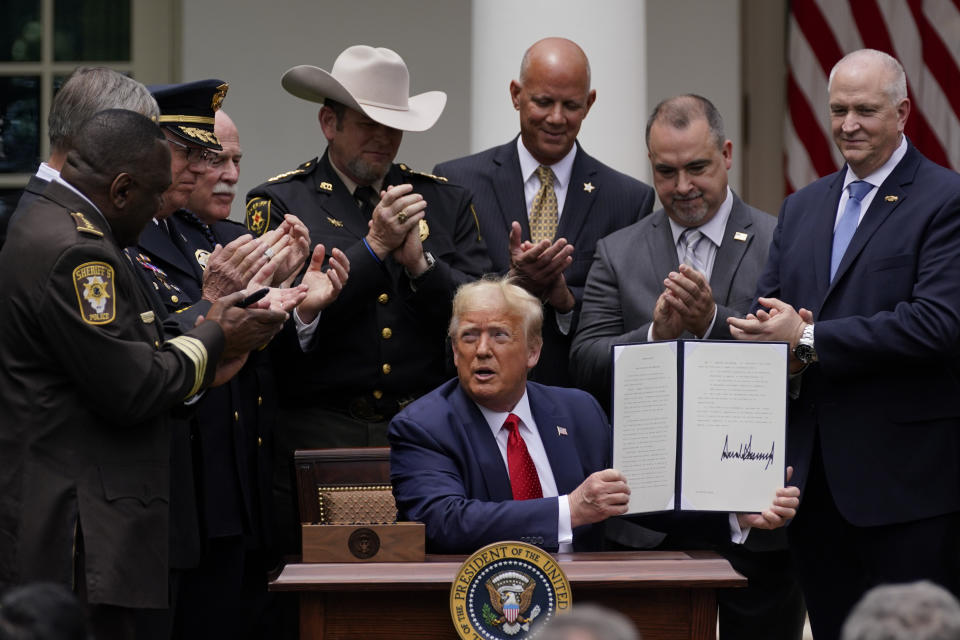Why Biden should go small
Most new presidents sweep into office claiming a “mandate” from voters to shake things up. Then they spend their first year in office pushing new policies meant to send the country in a fresh direction.
Incoming President Joe Biden might be wise to take the opposite approach, and go small instead of big. Voters did not give Biden a mandate, normally defined as commanding victory indicating widespread hope for a fresh start. Biden did better than Trump in 2016. His electoral vote tally could end up at 306, the same as Trump during the last election. And unlike Trump, Biden will win the popular vote too, leaving no doubt about the legitimacy of his election.
But Biden still won by very small margins in key states–less than 1% in Arizona, Georgia, Pennsylvania and Wisconsin, if current tallies hold. Voters in Maine chose Biden for president but sent Republican Sen. Susan Collins back for another term, the sort or ticket-splitting that doesn’t typically happen in a sweep. Down-ballot candidates often ride the “coattails” of the president in a partisan rout, but so far, Democrats have only flipped one Senate seat. Republicans need to win just one of two runoff contests in Georgia to keep control of the Senate, meaning Biden is likely to govern with a split Congress.
Trump barnstormed into office in 2017 determined to undo as much of his predecessor Barack Obama’s agenda as he could. That is, arguably, one reason Trump lost in 2020. For all the hostile partisanship in America, many voters dislike the nauseating circularity of tribal warfare in which two ideological groups are constantly trying to vanquish each other. Biden won moderates with his promise to unify rather than divide, to govern for all Americans rather than just for the faction in his corner.
Sure, that’s treacly campaign fodder at odds with the dirty pool required to thrive inside the Beltway. But it’s also in Biden’s interest, and his fellow Democrats’, to restore calm, leave Trump voters unprovoked and let the country argue over sports or Netflix shows for a while, instead of politics.

Biden has made clear he’ll use executive orders, as Trump did, to dial back Trump policies on immigration, energy, climate policy and other things. And he’ll do it right away. That will roil the Trump base, who will lather themselves into fresh outrage about socialists building windmills and immigrants taking their jobs. But only some of the 71 million Americans who voted for Trump are these hard-core loyalists. Others won’t care all that much about Biden’s orders, which will have limited effect, anyway. And Biden doesn’t have to trumpet every executive order he signs with multimedia fanfare, the way Trump does. He can pursue executive action relatively quietly, which would satisfy his own core supporters without changing much that typical voters are likely to notice in their own lives.
Gridlock might be good
The circumstances of Biden’s ascent to the presidency are both a challenge and a blessing. He’ll have no honeymoon, the traditional period of back-slapping, since the coronavirus is raging and the economy is still in a hole. This could all get worse before it gets better in a Biden administration, with consumer confidence flagging. Biden’s approval rating could start under 50% and stay there for a while.
But Biden will benefit from the work on a coronavirus vaccine that’s been underway for months. The first formal judgment on Biden’s job as president will be the 2022 midterm elections, and by then, a vaccine ought to be widely available, with the country getting back to normal. That will gift Biden a natural lift just as he needs it. If Biden’s main accomplishment during his first two years is vanquishing the coronavirus—and little else—voters may conclude, that’s plenty.

Biden, of course, has big plans for expanding health care and other aid programs, making college more affordable, tackling global warming and many other things. Most of those priorities would require new legislation, which Biden won’t be able to get if Republicans control the Senate. He’d have trouble with some of them even if Dems had a narrow Senate majority, because a handful of Senate Democrats are fiscal conservatives. So Biden will struggle to enact much of his agenda, much as President Obama did from 2010 to 2016, when Republicans in Congress were able to block it.
Left-leaning Democrats hoping for big policy changes will bemoan the gridlock of split government during the Biden administration’s first two years. But a caretaker presidency might be just the thing. Biden can reengage with allies, begin a gradual pivot away from carbon energy and build the case for an expanded social-safety net, while lowering the volume in Washington and giving Trump voters time to simmer down. Then in 2022, he can make the case for voters to give him a Democratic majority in Congress. If voters think that will entail radical change, they won’t. But if it means continued incremental improvements, they might.
Rick Newman is the author of four books, including “Rebounders: How Winners Pivot from Setback to Success.” Follow him on Twitter: @rickjnewman. Confidential tip line: [email protected]. Encrypted communication available. Click here to get Rick’s stories by email.
Read more:
Get the latest financial and business news from Yahoo Finance
Follow Yahoo Finance on Twitter, Facebook, Instagram, Flipboard, SmartNews, LinkedIn, YouTube, and reddit.
